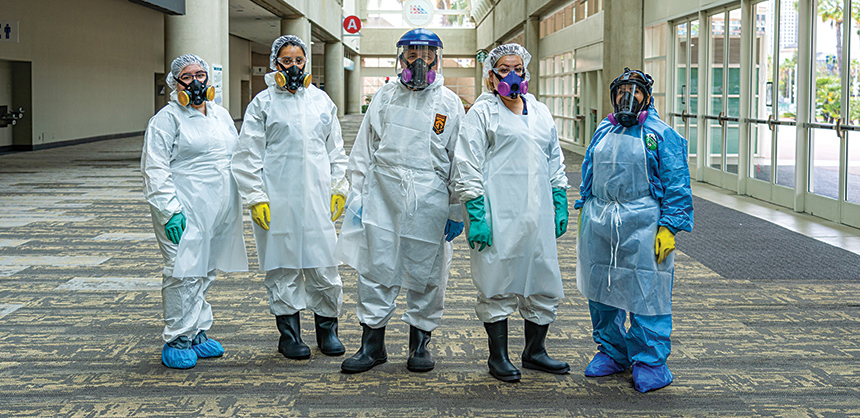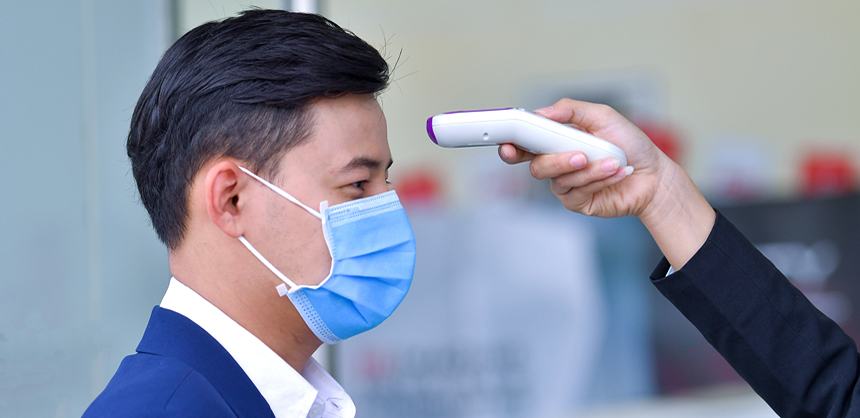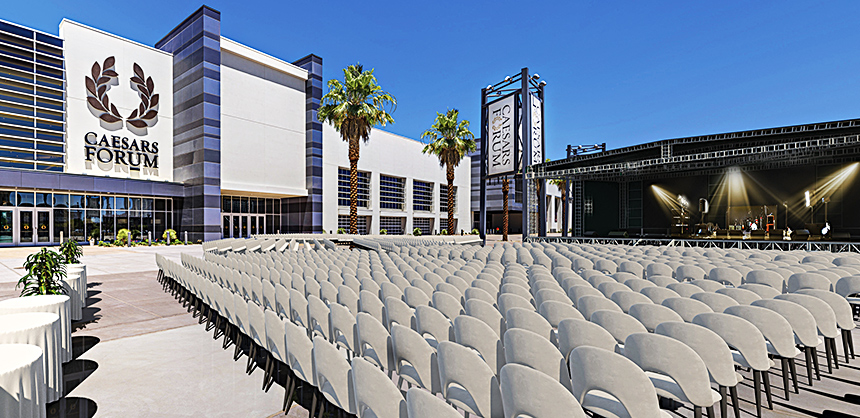Coming CleanSeptember 2, 2020
New Standards Are Put In Place To Calm Attendees And Speed Up A Return To Normal By David SwansonComing Clean
New Standards Are Put In Place To Calm Attendees And Speed Up A Return To Normal
Cleaning staff at the San Diego Convention Center (SDCC) wear masks and personal protective equipment while on the job. The SDCC was one of the first venues to receive accreditation from GBAC STAR, which recognizes facilities that meet international cleanliness standards.
Someday, we’ll be able to look back on the pandemic with 2020 hindsight. Until then, meeting planners, convention centers, and hotel sales and marketing teams are looking to establish a baseline for the “new normal,” the standards by which meetings and incentives can go forward safely.
That new baseline might be summed up by a five-word slogan: “Clean is the new sexy,” suggests Camille Garcia, director of sales and marketing for Le Méridien St. Louis Clayton. Over the last few months, as hand sanitizers, electrostatic sprayers and temperature checks have become part of the vernacular for the industry, meeting planners have had a crash course in myriad ways to keep attendees safe and healthy. But while sanitation equipment and distancing guidelines may be with us indefinitely, the other ingredient now is flexibility, a tool that meeting planners have always needed stashed in their back pocket. It’s become a vital element for successful meetings going forward.
Garcia says it was the insurance and financial industries that served as inspiration for how her hotel will open later this year. “The county can come out with new rules tomorrow,” Garcia says. “But these industries manage risk as part of their culture on a daily basis. We looked at the big market-drivers in St. Louis, such as Centene Corporation, to see what they were doing, and they’re still traveling. We asked, “What are these clients going to need? What do they do to be successful every day?” The answer is, they have multiple plans and backup plans, and the ability to pivot seamlessly for both clients and staff.”
In a sense, Le Méridien St. Louis Clayton timed the pandemic well. Formerly the Sheraton Clayton Plaza, the hotel closed for its renovation last fall. Garcia hopes the worst of the pandemic will have passed when the hotel reopens. The re-flagging features the same 17,000 sf of meeting space, but big structural changes happened in the lobby, with walls removed that opened up the space for guests, and a new open-air pool deck was added.
Requirements Before Resuming
Meanwhile, venues are preparing for the resumption of meetings by assessing distancing requirements and traffic flow to minimize the spread of the coronavirus. At the Orange County Convention Center in Orlando, executive director Mark Tester says, in addition to a lot more hand sanitizers, the facility is adding portable sinks to the public areas. “We’ll have over 1,300 signs, window clings and decals to encourage physical distancing, and we’ve created isolation areas, where people can go if they don’t feel well,” Tester says. “We announced a medical concierge, and they’ll customize a health plan for each event.” Orlando Health, a collection of local hospitals, will provide videos that can be shared with attendees, and nurse practitioners can be stationed on-site for events. “We think masks will be a great sponsorship opportunity,” Tester adds.
The Las Vegas Convention and Visitors Authority (LVCVA) is putting the finishing touches on an expansion of the Las Vegas Convention Center (LVCC), which was recently awarded the Global Biorisk Advisory Council (GBAC) STAR facility accreditation and is due to open on schedule in December. Brian Yost, COO, says no physical changes to the 1.4 million-sf West Hall expansion have been incorporated since the pandemic arrived. “We’ve been working through it to try and understand the best ways to ensure the safety of our buildings and the people that come here, but the science is changing, almost daily” Yost says. “We’re looking at aerosolization, and how to mitigate transmission through the air. We’re looking at UVC light solutions, which we’ll use on overnight shifts, because it can’t be used when people are around. We’re looking at electrostatic sprayers and foggers, and we’ve upgraded our HVAC systems to use MERV-14 rated filters, which is nearly hospital-level filtration.” Adds Yost, “All of the technology we deem most effective will be in the new building. Scale is a big issue, so we’re employing a cocktail of many ingredients.”
But while scale offers some challenges, it may also be part of the long-term solution. “In Las Vegas, we’ve got the brightest, most professional resort operators and casino companies,” Yost says. “When you talk about new technology being developed to combat the pandemic, tech providers want to associate themselves with Las Vegas because of its visibility on the global stage. Everybody who’s got a product or an iron in the lets-make-it-better fire, wants to showcase it here, and we are all working together to ensure that experience.”
Karen Totaro, CVE, COO of the San Diego Convention Center Corporation, says the San Diego Convention Center was one of the first venues to receive accreditation from GBAC STAR, which quickly became recognized as a standardized designation for safe venues and facilities internationally. A division of ISSA, the worldwide cleaning industry association, many of the world’s leading hotels and convention centers are currently going through the accreditation process. “It sets us apart,” Totaro says. “It’s third-party, unbiased validation to make sure our building is clean and ready for everyone.” Totaro also notes that the new cleaning protocols being introduced will not run afoul of the San Diego Convention Center’s LEED certification. “Using certain chemicals, we were concerned about the potential for that, but it won’t take that away,” she adds. “We’re so proud of achieving that LEED goal.”
Still, venues are having to adapt different protocols for each prospective event. “Some shows are skeptical about using temperature checks as a gauge for COVID. Other shows are at the other end of the spectrum; they say, ‘We’ll do everything we need to keep guests safe, full-stop.’ There’s a pretty wide gap,” Yost says.

Courtesy of Karen Totaro / Shutterstock.com
Looking for Balance
At the same time, more aggressive cleaning efforts are taking place at venues such as convention centers. High-end hotels are looking for the right balance between safety and luxury. Pam Gilbert, director of sales and marketing at the Fairmont Scottsdale Princess, says this new era is about finding the right balance, while not forgetting the hospitality component. “Although there are certain safety precautions that guests want, they’re still coming to a hotel, and they’re still expecting to have that luxury experience,” Gilbert says. “Previously, cleaning was always a hidden activity, our guests wanted it to happen behind the scenes. Now, places that used to be cleaned surreptitiously or at night are happening out in the open, and people are comforted by seeing that.”
Currently, most groups booking the Fairmont Scottsdale Princess are reducing their attendance for fall meetings, Gilbert says. She notes that the resort’s ample breathing room — 65 acres, six pools and 316,000 sf of indoor and outdoor meeting space — is allowing planners the ability to schedule smaller meetings with confidence. “We’re being inventive,” Gilbert adds. “One of things we’re doing for evening receptions is lawn parties, with lawn blankets in concentric circles. People who associate together frequently can group together. We’re doing cocktail service, movies on the screen, comedy acts and entertainers, and then we have the great outdoors where the ventilation is better.”
Courtney Lohmann, CMP, director of corporate social responsibility for PRA Business Events, currently leads PRA’s hotel safety team. She recently joined a 60-person health and wellness company that was gathered at the Stein Eriksen Lodge Deer Valley in Park City, Utah. It was the third event PRA has overseen since the pandemic started, and her main observation was the changes to processes at the hotel changed, starting from check-in. “A mask was required to enter the lobby, and registration was touchless,” Lohmann says. “They handed each guest a packet, which included a key card and a one-sheet with QR codes that accessed menus for the restaurants and in-room dining. There was someone to greet you; but, instead of opening doors, they were left open. It all felt very integrated, with hotel-branded hand-sanitizer pumps, designed to blend in with the décor and placed strategically through the property.”
Lohmann says her hotel room was immaculate, with some harder-to-clean items removed, which meant fewer touch points. “The room is sealed for 24 hours after checkout before it is cleaned,” Lohmann adds. “Then, it is closed for another 24 hours before check-in, so I felt that I was walking into a safe, clean space.”
But, as much as the hotel was distancing staff and providing cleaning that made Lohmann feel secure in her surroundings, her biggest takeaway was the guest awareness. “Human behavior really hasn’t changed,” Lohmann says. “As much as we all reinforced social distancing, if an attendee hasn’t seen someone in a year, they want to give them a hug. You have those moments when people don’t distance themselves.” Lohmann, who normally works in sustainability at PRA, feels the increased signage today is important and effective. “Signage is really critical, to help us keep health and safety in mind.”
Lohmann adds that communications with clients and attendees needs to be diligent. “With my clients, the biggest thing I talk with them about is ensuring that their entire communication plan is really on-point,” Lohmann says. “Set appropriate expectations so there isn’t an element of surprise. Let them know what can they expect when they arrive. Really dive in so they understand what the process will be. We advise doing a little over sharing.”
More Client collaboration
Laura Manzano, founder of Manzano Hospitality, says the relationship between meeting planners and their clients needs to be collaborative. Manzano, whose clients are mostly financial, and focused on CEO retreats, board meetings and incentives, notes that although a “good portion” of her events have been pushed back a year, with her clients, she introduces different topics to test their comfort level and tolerance for travel right now. “I get diverse reactions,” Manzano says. “There are some clients that are very risk-averse and do not see urgency for a program that might normally take place three times a year; they’ve hit the pause button. Others feel it’s important to have conversations at this time, especially C-suite. They may be pushing back just six months. It’s all over the map.”
Manzano continues,“One client who typically travels internationally for an annual incentive said he was much more comfortable traveling domestically right now, and wants international off the table for 2021. That’s his way of mitigating some risk. This client also wants a smaller, more private resort experience. If you’re not sharing the property with other guests, you’re taking on risk only with staff. I’m also promoting lower-profile properties — ranch-style or bungalow experiences rather than a main building with elevators.”
She adds, “It’s a two-way conversation to understand what the objectives are and pair it with their tolerance for risk. They each have to assess their situation.” Another part of the conversation is understanding whether the gathering is strictly the internal group, versus those where external people are being invited.
Manzano is also paying closer attention to the solvency of assets being used for a group. “If you check around and ask if hotels have been fulfilling their invoices on the same time frame as before, you find some surprising answers,” she says. To avoid uncomfortable conversations, she recommends making the credit check a collaborative process, even a mutual document. “Let them know you want to understand who you’re doing business with.”
Adds Gilbert, “Hotels are absorbing additional costs with much less revenue coming in. We’re being good partners and trying to get back on our feet as we move forward; but, this is not sustainable for the long term.”

Planners and attendees are looking for more opportunities to do events outside. Caesars FORUM offers a 100,000-sf outdoor plaza.
International Interest on Hold
With wide-ranging travel restrictions in place for at least the short term, international meetings are a shot in the dark. But overseas facilities and DMOs are hopeful for some sense of normalcy in 2021. Providing flexibility in contracts is essential, according to Duccio Ulivelli, head of international sales at the Milano Convention Centre in Italy. “Nothing is guaranteed right now,” Ulivelli says. “We don’t know when doors will be open for U.S. travelers. We don’t know if, tomorrow, there might be a new phase of the pandemic that might close the borders. As you can understand, any planner who is organizing an international event is scared; they don’t know what to expect.”
Ulivelli continues, “What they expect from us is to be not just providers, but partners, so we are changing our contracts to be more flexible. We can close the deal but are writing that, as the event approaches, we are available to review completely what has been negotiated and to cut spaces, if necessary.”
Angela Inglis, CIS, Scotland director for 2B UK, says there is still “quite a large appetite” for U.S.-based insurance and financial companies to convene in Scotland. “Our [coronavirus] figures continue to fall,” Inglis says. “What we’re waiting on is to see the U.S. figures dropping. Most of what was scheduled for this summer has been postponed, not cancelled. They’re still confident of having a meeting next summer. There’s a long time between now and next year; but, generally, the attitude seems to be very positive.”
Inglis adds that an asset Scotland offers meeting planners is wide, open spaces and greenery. “People find that such a huge plus,” Inglis says. “We have such a large amount of space, even in our cities — Edinburgh is 49% green space. We have a lot of exclusive-use castles averaging about 15 bedrooms, so for smaller groups these are manageable. Or you can even have a whole island to yourselves. We have a lot of history we can play with, and a lot of unique venues.”
Of course, there are U.S. destinations that have open-air environments to spare, San Diego and Las Vegas among them. Tester says Orlando’s reputation as a clean, safe destination starts with the theme parks. “SeaWorld, Universal and Disney are stellar for doing it the right way,” Tester says. “They’re adapting on the fly. Their reputations are worldwide, and they’re taking it incredibly seriously. We have always desired to bring that same level of cleanliness into the convention center and, now with COVID-19, we’re amping it up.”
Meanwhile, Pam Gilbert can’t wait to get back to business. “Everyone misses the connectivity,” Gilbert says. “Companies are feeling a negative impact on the teamwork. But we have to realize we’re in a new place; you have to shift and pivot. We need to be fearless and pioneers. A renaissance in meetings may come out of this.” | I&FMM |










